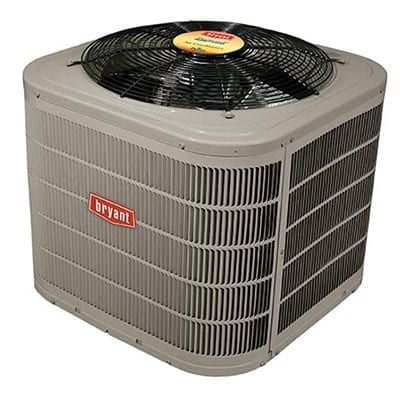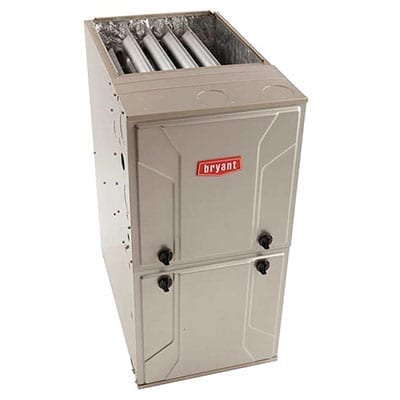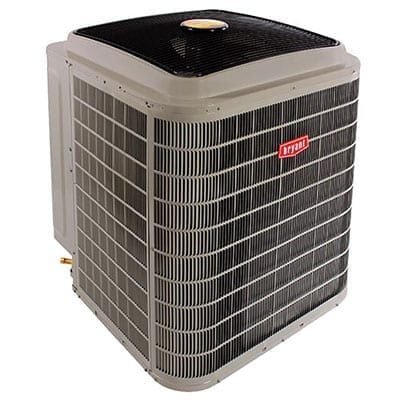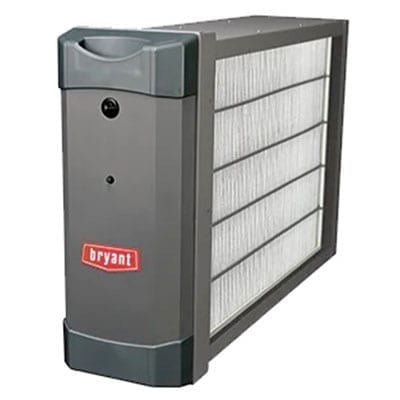Commercial HVAC for Specialty Food Stores
Specialty food stores rely on specialized air conditioning and air conditioning systems to maintain the quality and freshness of their products. These systems are essential for preserving the temperature and humidity levels in both the residential freezer and commercial kitchen areas. The crucial role of air conditioning and heating systems (HVAC) in preserving perishable items cannot be overstated, making effective solutions for air conditioners and ventilation needs essential for creating a comfortable shopping environment. Commercial HVAC for specialty food stores, including supermarkets, goes beyond temperature control; it encompasses the preservation of delicate goods showcased in display cases throughout the store. This includes maintaining the residential freezer and ensuring proper freezer maintenance. Additionally, the heating system is also important for maintaining the optimal conditions for the showcased goods. Supermarkets, particularly those focusing on specialty items, demand precise climate regulation in their commercial kitchens to ensure that their unique inventory remains at its peak quality. This is especially important for display cases in restaurants. With this in mind, implementing tailored HVAC systems, including specialty facilities, heating, exhaust hood, and air curtains becomes imperative for these establishments.
Commercial HVAC Systems Tailored for Specialty Food Stores
Specific Requirements
Commercial HVAC systems designed for specialty food stores, including restaurants, cater to precise temperature and humidity needs in the kitchen. These systems ensure optimal conditions for freezers and utilize air curtains to maintain a controlled environment. These freezer systems ensure that delicate products, such as cheeses and chocolates, are stored in optimal conditions in specialty facilities. These facilities can be found in grocery stores and are equipped with air curtains to maintain the desired temperature. For instance, a specialty cheese shop requires a cooler environment in its freezer than a standard grocery store’s kitchen to maintain the quality of its products.
To protect perishable items like artisanal meats and fresh produce in grocery stores, HVAC systems must have advanced controls, sensors, and air curtains. These air curtains are especially important in freezer areas. Lennox is a leading brand known for their high-quality HVAC systems. These features enable the HVAC system to maintain consistent temperatures throughout the grocery store, including the freezer section. Moreover, grocery stores and restaurants rely on HVAC services to prevent fluctuations in temperature and humidity that could compromise the quality of specialty food items in their kitchens.
Customized ventilation solutions are essential for addressing unique challenges faced by specialty food stores, including restaurants. For example, controlling odors is crucial for restaurants selling pungent cheeses or seafood. Effective ventilation in a restaurant ensures that strong odors do not permeate other areas of the store or affect customers’ dining experiences.
Equipment Features
The HVAC system installed in a specialty food store often includes specialized restaurant equipment tailored to specific restaurant requirements. This may involve installing separate cooling units for different sections of the store based on their individual temperature needs.
These systems might incorporate air purification technologies to maintain high indoor air quality (IAQ). The use of air purifiers can be particularly important in specialty food stores where maintaining product freshness is paramount.
Furthermore, some commercial HVAC systems feature humidity control mechanisms specifically designed for storing certain types of foods at ideal moisture levels. This is crucial when dealing with products like wines or bread where humidity plays a significant role in preserving their quality over time.
Energy Efficiency in Specialty Food Store HVAC Design
Cost Savings
Energy-efficient HVAC design is crucial for specialty food stores as it helps to reduce energy costs, a significant portion of their operational expenses. By incorporating proper insulation, high-efficiency equipment, and smart controls, these establishments can achieve substantial savings on their energy bills. For instance, by using advanced control systems that adjust the temperature based on occupancy and outdoor conditions, specialty food stores can minimize unnecessary energy consumption.
Implementing energy-saving measures not only benefits the store’s bottom line but also aligns with sustainability goals. This approach reflects positively on the business’s environmental responsibility and commitment to reducing its carbon footprint. As an example, installing LED lighting fixtures alongside an efficient HVAC system contributes to creating a more sustainable operation while lowering overall energy usage.
Customer Experience
In addition to cost savings and sustainability objectives, an energy-efficient HVAC system enhances the customer experience within specialty food stores. Maintaining optimal indoor temperatures ensures that perishable items such as fresh produce, dairy products, and meats are stored under ideal conditions. This not only preserves product quality but also extends shelf life – a critical factor for specialty food retailers.
Moreover, maintaining comfortable indoor air quality through efficient ventilation systems creates a pleasant shopping environment for customers. Proper humidity control is essential for preserving delicate goods like cheeses or chocolates while ensuring that shoppers have an enjoyable experience without feeling uncomfortable due to excessive heat or cold.
Enhancing Customer Comfort with Advanced HVAC Solutions
Zoned Heating and Cooling
Commercial HVAC for specialty food stores can greatly benefit from advanced solutions such as zoned heating and cooling. This technology allows different areas of the store to have their own temperature settings, ensuring that delicate products like cheeses or chocolates are stored at optimal temperatures. For example, the cheese section can be kept cooler than the bakery area, creating ideal conditions for each product category. This not only maintains product quality but also contributes to a more comfortable shopping environment for customers.
Zoned heating and cooling also enable energy savings by only conditioning specific zones when needed. By utilizing Lennox‘s zoned systems, specialty food stores can efficiently manage their energy consumption while providing a pleasant shopping atmosphere. This level of control over indoor climate ensures that customers feel comfortable throughout the store regardless of external weather conditions.
Efficient air filtration systems play a crucial role in maintaining high indoor air quality within specialty food stores. These systems effectively remove airborne particles and contaminants, contributing to a clean and fresh environment for both customers and perishable goods. The integration of advanced HVAC services, including top-quality air filters, assists in preventing unwanted odors from permeating through the store’s premises.
Smart Thermostats and Air Distribution Systems
The implementation of smart thermostats in specialty food stores allows precise temperature regulation based on specific zones or times of day. For instance, during peak business hours or warmer seasons, targeted cooling can be directed towards areas where fresh produce is displayed to maintain optimal freshness levels. Smart thermostats contribute to significant energy savings by automatically adjusting temperature settings when areas are unoccupied.
Furthermore, sophisticated air distribution systems ensure an even flow of conditioned air throughout the entire store space without causing any discomfort due to drafts or uneven temperatures. By strategically placing diffusers and vents in appropriate locations alongside efficient ductwork design, these systems help maintain consistent comfort levels across all sections of the establishment.
Importance of Air Quality and Health in Food Retail Environments
Preserving Freshness and Minimizing Contamination
Specialty food stores rely on maintaining exceptional air quality to uphold the freshness of their products. Clean air plays a pivotal role in reducing the risk of contamination, ensuring that delicate items such as artisanal cheeses, fresh produce, and premium meats remain at optimal quality for consumers. By utilizing commercial HVAC systems, specialty food retailers can effectively regulate temperature and humidity levels to prolong the shelf life of perishable goods.
Proper ventilation is essential for eliminating odors and airborne particles that could compromise the integrity of specialty foods. For instance, robust ventilation systems equipped with high-quality filters can effectively remove cooking fumes, smoke, or other pollutants commonly found in restaurants within a supermarket setting. This not only contributes to preserving product quality but also creates an inviting shopping environment that aligns with customers’ expectations when seeking out unique culinary experiences.
Promoting a Healthy Shopping Environment
In addition to safeguarding product freshness, maintaining excellent air quality is crucial for promoting a healthy shopping environment within supermarkets specializing in gourmet or organic products. With proper air filtration mechanisms in place, allergens like dust mites, pollen, or mold spores are significantly reduced. As a result, this helps create a space where individuals with respiratory sensitivities or allergies can comfortably browse through aisles without concerns about indoor air pollution triggering adverse health effects.
Furthermore, advanced commercial HVAC solutions contribute to controlling indoor humidity levels—an important factor often overlooked but integral to providing an overall comfortable atmosphere for shoppers while preventing issues such as moisture-related spoilage of food items or mold growth on surfaces inside the store.
Maintaining optimal indoor air quality demonstrates a commitment to customer well-being by creating an environment where patrons feel confident about the safety and freshness of the products they purchase—a significant aspect particularly emphasized by establishments focusing on offering high-quality consumables.
Air Curtains and Destratification Fans for Optimal Climate Control
Air Curtains
Air curtains are essential for maintaining a consistent internal temperature in specialty food stores. They create an invisible barrier that stops outside air from entering the store, preventing energy loss. For instance, when customers enter or exit the store, air curtains help keep the cold air inside during hot weather or prevent warm air from escaping during colder temperatures.
These systems also play a crucial role in preserving proper ventilation. By effectively sealing off the store’s entrance, air curtains ensure that the indoor environment remains unaffected by external climates and maintains ideal conditions for storing perishable goods. In addition to this, they contribute to reducing HVAC load by minimizing temperature fluctuations caused by frequent door openings.
Dedicated ventilation needs, especially in spaces where food is stored and sold, are vital to maintaining product quality and safety standards. With their ability to regulate airflow at entry points, air curtains significantly enhance these requirements while simultaneously aiding in energy conservation.
Destratification Fans
In tandem with air curtains, destratification fans offer an efficient solution for improving overall temperature distribution within specialty food stores. These fans work by circulating warm or cool air throughout the space, ensuring that there are no significant variations in temperature between different areas of the store.
By addressing issues related to humidity control and preventing stagnant pockets of either warm or cool air from forming within the establishment, destratification fans contribute significantly to creating an optimal climate-controlled environment. This is particularly beneficial for specialty food stores as it helps maintain specific temperatures required for various products such as fresh produce, dairy items, meats, and more.
The integration of destratification fans into a commercial HVAC system not only enhances customer comfort but also plays a pivotal role in supporting operational efficiency within these establishments. Through improved airflow management provided by these fans, specialty food stores can achieve better refrigeration performance while reducing overall energy consumption associated with traditional cooling methods.
Repair and Maintenance of Commercial Coolers and Kitchen Equipment
Importance of Regular Maintenance
Proper maintenance of commercial coolers and kitchen equipment is crucial for ensuring optimal performance. Regular maintenance, including freezer maintenance, helps prevent unexpected breakdowns that can be costly to repair. By conducting routine checks on the refrigeration equipment, specialty food stores can ensure uninterrupted operation, which is essential for meeting customer demands.
Specialty food stores rely heavily on various types of refrigeration equipment such as commercial coolers and residential freezers to store perishable items like dairy products, meat, or ice cream. These cooling units require regular attention to maintain their efficiency and prolong their lifespan. Timely maintenance services for the condenser coils and other components are necessary to keep the equipment running smoothly.
Compliance with Health Regulations
In addition to preventing breakdowns, properly maintained cooling systems help specialty food stores comply with health and safety regulations. Maintaining a consistent temperature in commercial coolers is critical for preserving the quality of perishable foods while also preventing bacterial growth that could lead to contamination.
Regular maintenance ensures that all parts of the cooling system, including those found in the cold side of a commercial kitchen, are functioning correctly. This not only supports operational efficiency but also contributes significantly to maintaining a safe environment where food preparation takes place.
Specialized HVAC Equipment for Enhanced Food Preservation
Preserving Perishable Items
Specialty food stores rely on commercial HVAC equipment to ensure the preservation of their perishable items. For instance, specialized freezers are essential for storing delicate and high-value food products such as imported cheeses, premium meats, and seafood. These freezers are designed to maintain ultra-low temperatures that extend the shelf life of these items, preserving their quality and freshness.
Advanced temperature monitoring systems play a crucial role in maintaining precise storage conditions for specialty food items. These systems provide accurate data on temperature fluctuations within the storage units. By ensuring consistent and optimal temperatures, they contribute to prolonging the shelf life of perishable goods while safeguarding their quality.
Humidity control systems also play a pivotal role in enhancing food preservation at specialty food stores. They help regulate moisture levels within refrigeration units and storage areas, which is particularly beneficial for delicate products like artisanal chocolates or pastries. By maintaining ideal humidity levels, these systems prevent moisture-related issues that could compromise the integrity of these specialty foods.
Ensuring Freshness in Food Preparation
In addition to preserving finished products, commercial HVAC equipment also plays a critical role in ensuring freshness during food preparation processes at specialty stores. For example, exhaust hoods equipped with efficient ventilation systems effectively remove heat, smoke, grease particles from cooking areas while promoting air circulation. This not only creates a comfortable working environment but also helps maintain the quality of prepared foods by preventing them from absorbing unwanted odors or flavors.
Hot water is another essential component provided by specialized HVAC equipment used in food preparation areas. It’s indispensable for various culinary tasks such as sanitizing utensils and surfaces or blanching vegetables before packaging them for sale at specialty stores.
By utilizing tailored commercial HVAC solutions specifically designed for specialty food stores’ unique requirements — including freezers optimized for delicate products’ long-term preservation — businesses can significantly reduce waste due to spoilage while consistently delivering high-quality offerings to customers.
Expert Installation and Service by Skilled Technicians
Proper Sizing and Configuration
Specialty food stores require commercial HVAC systems that are specifically tailored to their unique needs. Professional installation is crucial as it ensures that the HVAC equipment is properly sized and configured for these facilities. This means that the system will be able to efficiently regulate temperature and humidity levels, which are essential for preserving delicate food items. For example, a skilled technician can assess the specific requirements of a cheese aging room or wine cellar within a specialty store and install an HVAC system that meets those precise needs.
Proper sizing and configuration also contribute to energy efficiency. By ensuring that the HVAC system is optimized for the size of the facility, unnecessary energy consumption can be avoided, leading to cost savings in the long run.
Skilled technicians have extensive knowledge about different types of HVAC systems suitable for specialty food stores. They understand how factors such as airflow patterns, filtration requirements, and air quality impact various perishable products like artisanal cheeses or organic wines. Their expertise allows them to recommend and install systems that create optimal conditions for preserving these specialty foods while complying with industry regulations.
Troubleshooting Issues and Optimizing Performance
Once installed, commercial HVAC systems in specialty food stores require regular maintenance to ensure smooth operation. Skilled technicians play a critical role in this aspect as they possess troubleshooting skills necessary to identify any issues promptly. For instance, if there’s a sudden fluctuation in temperature within a refrigerated display case showcasing gourmet chocolates, an experienced technician can diagnose the problem accurately.
Moreover, skilled technicians can optimize system performance through routine service visits. They have the expertise to fine-tune settings based on seasonal changes or alterations in inventory storage arrangements within these specialized facilities.
Regular service visits by qualified professionals help prolong the lifespan of HVAC equipment, reducing downtime due to unexpected failures or breakdowns during peak business hours at specialty food stores.
Strategies for Customer Retention Through Reliable HVAC Performance
Enhanced Shopping Environment
Consistent HVAC performance is crucial for maintaining a comfortable shopping environment in specialty food stores. When the air conditioning and heating systems work reliably, customers can browse through the store comfortably, leading to enhanced satisfaction. Imagine walking into a cheese shop with inconsistent temperatures – it would be uncomfortable and might even affect the quality of the products.
Specialty food items like artisanal cheeses, chocolates, or wines require specific storage conditions to maintain their quality. For instance, maintaining an optimal temperature and humidity level is essential for preserving the flavor and texture of fine cheeses. A well-functioning commercial HVAC system ensures that these delicate products are stored under ideal conditions, contributing to preserving product quality.
Reliable HVAC performance also plays a key role in creating an inviting atmosphere that encourages customers to linger longer in the store. When shoppers feel comfortable browsing through aisles without feeling too hot or cold due to erratic temperature control, they are more likely to spend time exploring different offerings.
Commitment to Customer Needs
To ensure customer retention and loyalty, specialty food stores must demonstrate a commitment to addressing their patrons’ needs beyond just offering high-quality products. This includes providing proactive maintenance services for their commercial HVAC systems, ensuring uninterrupted comfort for shoppers.
By investing in regular maintenance checks and timely repairs when needed, specialty food stores convey their dedication towards meeting customer expectations regarding comfort and product quality preservation. For example, if a wine shop’s cooling system malfunctions during peak summer months affecting its inventory of fine wines kept at precise temperatures—prompt repair services become critical not only for preserving inventory but also retaining loyal clientele who rely on consistently maintained wine quality.
Moreover, promptly addressing any issues related to temperature control showcases an understanding of how crucial it is for specialty foods’ integrity – from gourmet chocolates susceptible to melting in excessive heat or premium olive oils vulnerable to spoilage due to improper storage conditions.
Conclusion
In the competitive landscape of specialty food retail, the HVAC system plays a pivotal role in maintaining optimal conditions for both perishable goods and customer comfort. From tailored HVAC solutions to energy-efficient designs, air quality considerations, and specialized equipment, every aspect contributes to the success of a specialty food store. By prioritizing expert installation, regular maintenance, and reliable performance, businesses can ensure customer satisfaction and loyalty while safeguarding their valuable inventory.
As the demand for unique culinary experiences continues to rise, it is imperative for specialty food stores to invest in top-tier HVAC systems. By staying abreast of the latest advancements and best practices in HVAC technology, businesses can not only elevate their operational efficiency but also create a welcoming environment that enhances the overall customer experience.
Frequently Asked Questions
What are the specific HVAC needs for specialty food stores?
Specialty food stores require precise temperature and humidity control to preserve delicate products. Air quality is crucial for maintaining the freshness of perishable items.
How can commercial HVAC systems be tailored for specialty food stores?
Commercial HVAC systems for specialty food stores may include advanced filtration systems, zoning capabilities, and precise temperature controls to meet the unique requirements of preserving specialty foods.
Why is energy efficiency important in specialty food store HVAC design?
Energy-efficient HVAC design helps reduce operational costs while maintaining optimal environmental conditions for both products and customers. This not only saves money but also aligns with sustainable business practices.
What role does air quality play in a food retail environment?
Maintaining high air quality is essential in preventing contamination and preserving product freshness. Proper ventilation and filtration help create a healthy environment for both employees and customers.
How do air curtains and destratification fans contribute to optimal climate control in specialty food stores?
Air curtains prevent temperature loss at entrances, while destratification fans circulate air to maintain consistent temperatures throughout the space, ensuring ideal conditions for storing perishable goods.
Why is expert installation and service critical for specialized HVAC equipment in food retail environments?
Expert installation ensures that specialized HVAC equipment operates effectively from the start, while regular maintenance by skilled technicians prolongs equipment lifespan and prevents disruptions to daily operations.
Related Information
Commercial HVAC for Surf Shops
Commercial HVAC for Stationery Stores
Commercial HVAC for Sports Memorabilia Stores
Commercial HVAC for Spice Stores
Commercial HVAC for Specialty Electronics Stores
Commercial HVAC for Soap Shops
Commercial HVAC for Smoothie Shops
Commercial HVAC for Smoothie Bars
Commercial HVAC for Small-Sized Event Spaces
The Primary Services Provided By Our Local HVAC Company
Areas We Service
Click on the area below to see what your neighbors are saying about their recent experiences with our company.
Our Locations
14913 SE Kellogg Ave
Milwaukie, OR 97267, USA
4409 SE 24th Ave, Suite 35
Portland, OR 97202, USA




